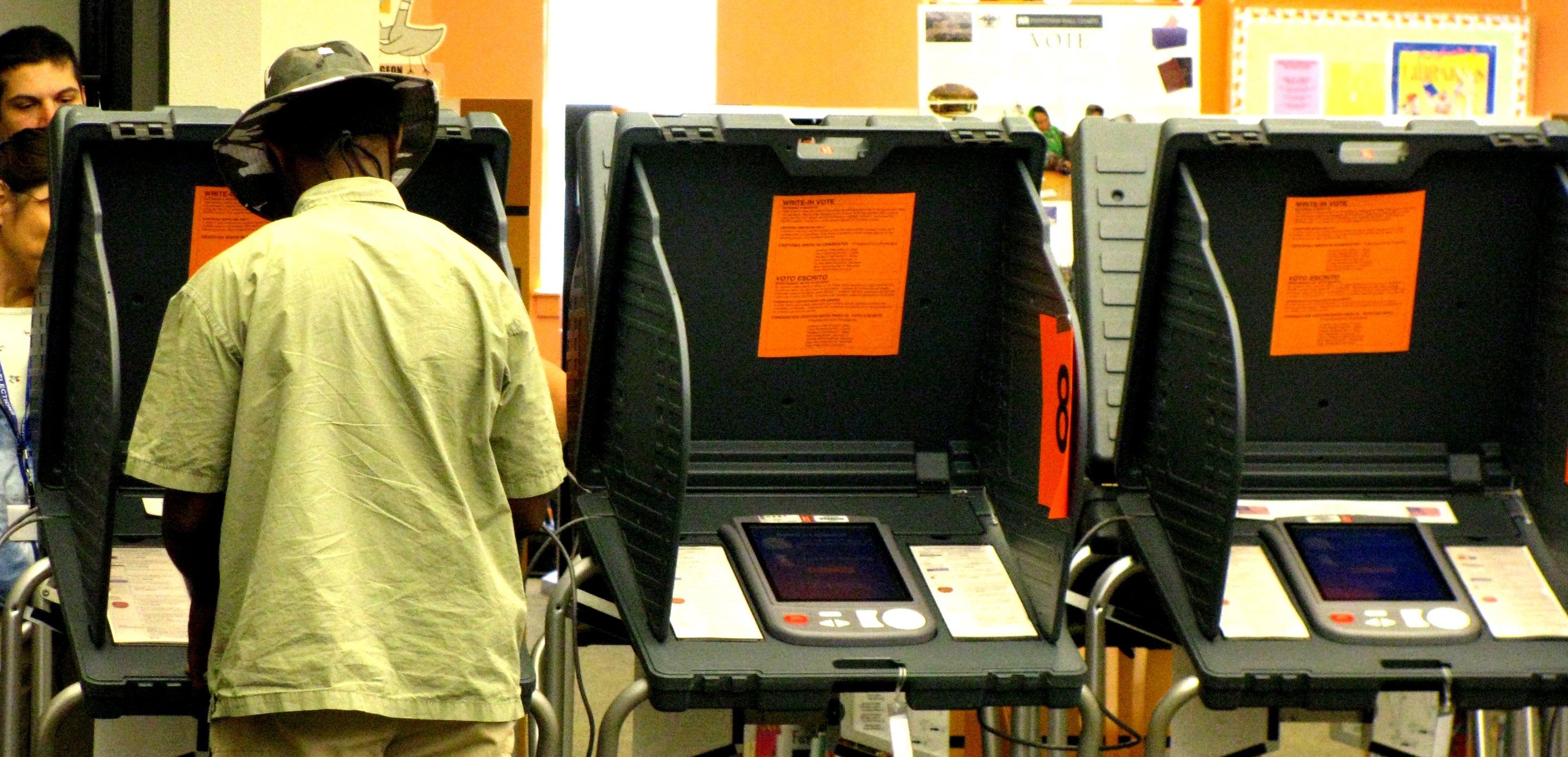Editor's note: This story was updated with new information about countywide estimates of the voter registration gap.
A new dataset from the Kinder Institute for Urban Research Urban Data Platform shows just how many registered voters there are in Harris County by ZIP code and precinct. While the data shows where voters are concentrated, it does not indicate where stronger voter turnout is. The data is derived from information provided by the Harris County Clerk’s Office.
Most ZIP codes have healthy voter registration rates based on the count of registered voters as of 2024 and the estimated number of citizens 18 years and older in 2022. In fact, about 1 in 3 ZIP codes had rates near or exceeding 100%, which can occur particularly in fast-growing ZIP codes or areas where people are more likely to move, which can skew the count. The 2022 data was used for the voter counts for citizens 18 and older because it was the latest year available in the U.S. Census Bureau’s American Community Survey five-year estimates, which allow for population estimates by small areas such as ZIP codes.
The above data also shows that out of the county’s eligible citizen population — an estimated 2.78 million adults — more than 177,000 may not be registered to vote. That’s enough votes to make a difference in almost any local or national election.
However, it is also likely that the actual number is much higher. If one instead uses the county’s total eligible citizen population count from the American Community Survey one-year estimate for 2022 — which is 2.87 million adults — the estimate of the number of unregistered eligible voters becomes 265,000. Estimates could be further improved by considering population displacement, naturalization, citizens age 16 or 17 turning 18, etc. Other organizations such as Civitech are trying to do that.
“If the voter registration rate could be used as one indicator of civic engagement, then community organizations can also use this dataset in their planning,” said Hien Le, director of data operations for the Kinder Institute.
For example, the dataset could allow organizations to advance civic engagement by identifying ZIP codes that could potentially yield faster results or the ones where they could deploy more outreach efforts. Research from Rice University, made possible through a Houston Endowment grant, is working on ways to improve voter turnout.
According to the official tally from the most recent election from the Harris County Clerk’s Office, of the more than 2.6 million registered voters in Harris County, a total of 381,722 had ballots counted in the Democratic (178,108) and Republican (203,614) primaries on March 5. Combined, the voter turnout was 14.6%.
“Your local elections determine your city and county priorities, and state representatives make policies and implement budgets that impact schools, infrastructure, safety, health care and so much more,” said Katie Campbell Shumway, executive director for the League of Women Voters of Houston.
Low voter turnout is a perennial concern, as is a gap in voter registration. In Harris County, about 20 ZIP codes have less than 80% of their eligible population registered to vote.
“When a large percentage of people abstain from voting, elected officials may not represent the will of the people,” Campbell Shumway said.
Turnout for presidential primary elections is historically low in Texas. The Secretary of State reports that in 2020, 12.44% of registered voters cast ballots in the Republican primary and 12.92% turned out on the Democratic side. In 2016, 19.92% of Republicans and 10.08% of Democrats cast ballots.
“Our American democracy is one of a kind and works best when everyone participates,” Campbell Shumway said.
According to KFF, Texas lagged behind much of the country with only 65.2% of the state’s voting-age population registered to vote in the November 2022 general election. Only 47% of the state’s voter population cast ballots. Minorities were less likely to vote. Nationally, 69.1% of the voting age population was registered to vote and 52.2% of registered voters cast ballots in the election.
The next election in Harris County is the primary runoff on May 28 for candidates who did not garner at least 50% of the primary vote. The national Election Day is Nov. 5.



